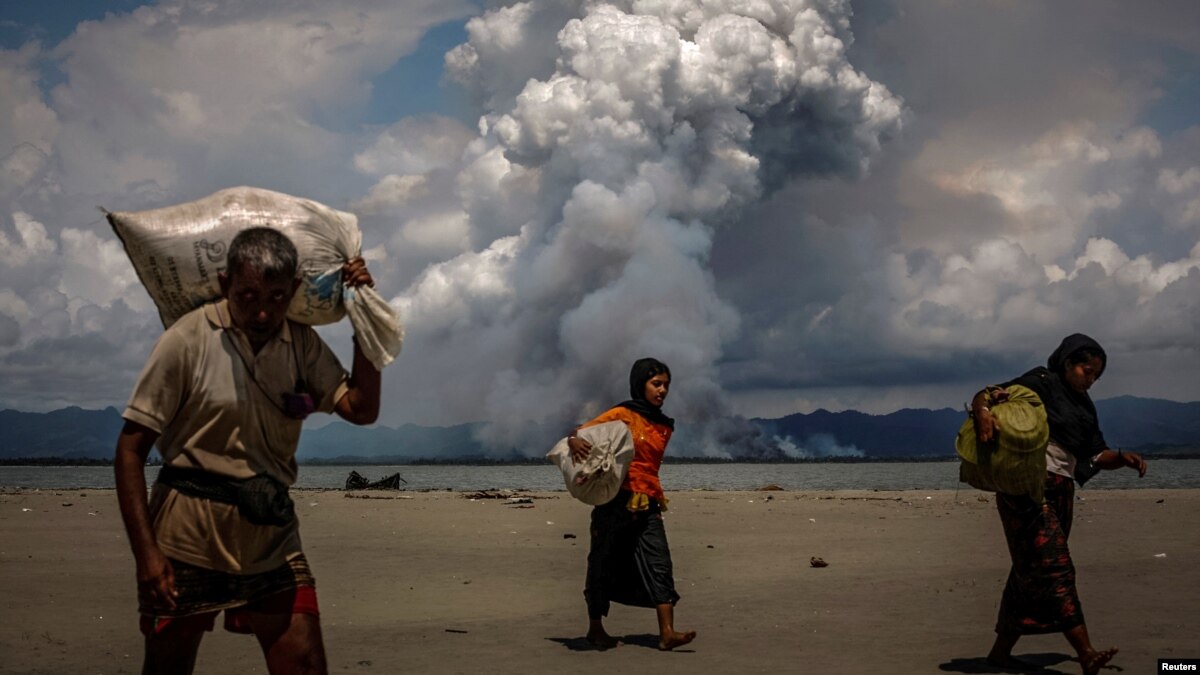
A U.S. government probe into Myanmar’s campaign against the Rohingya Muslim minority was not aimed at determining whether genocide or crimes against humanity had been committed, but those responsible could still be held accountable for those crimes, a top State Department official said Thursday.
The U.S. State Department report released Monday said Myanmar’s military waged a “well-planned and coordinated” campaign of mass killings, gang rapes and other atrocities against the Rohingya.
But it stopped short of describing the crackdown as genocide or crimes against humanity, an issue that other U.S. officials said was the subject of fierce internal debate that delayed the report’s rollout for nearly a month.
“There weren’t legal judgments expressed in it because that wasn’t the point of the report,” U.S. Deputy Secretary of State John Sullivan told a news conference in New York when asked why the report had not used the words “genocide” or “crimes against humanity.”
He added: “We are working toward holding those accountable, including judgments like the one you have offered — characterizing it as a crime against humanity or genocide.”
Pompeo meeting
Sullivan spoke on the sidelines of the U.N. General Assembly, shortly before Secretary of State Mike Pompeo met with Kyaw Tint Swe, Myanmar’s minister for the Office of the State Counselor and its representative to the U.N. session.
Pompeo did not respond to a reporter’s question about whether there had been genocide in Myanmar.
U.S. officials told Reuters earlier this week that the State Department report could be used to justify further U.S. sanctions or other punitive measures against Myanmar authorities.
The report, which was first reported by Reuters, resulted from more than 1,000 interviews of Rohingya men and women in refugee camps in neighboring Bangladesh, where almost 700,000 Rohingya have fled after a military campaign last year in Myanmar’s Rakhine State.
Survivors detail ordeal
Survivors described in harrowing detail what they had witnessed, including soldiers killing infants and small children, the shooting of unarmed men, and victims buried alive or thrown into pits of mass graves. They told of widespread sexual assault by Myanmar’s military of Rohingya women, often carried out in public.
The Myanmar government spokesman Zaw Htay declined to comment when reached Tuesday and said he was unable to answer questions by telephone. Calls to military spokesman Major General Tun Tun Nyi were unanswered.
Human rights groups and Rohingya activists have put the death toll in the thousands from the crackdown, which followed attacks by Rohingya insurgents on security forces in Rakhine State in August 2017.
The results of the U.S. investigation were released in low-key fashion, posted on the State Department’s website, nearly a month after U.N. investigators issued their own report accusing Myanmar’s military of acting with “genocidal intent” and calling for the country’s commander-in-chief and five generals to be prosecuted under international law.
Myanmar issues denials
The military in Myanmar, previously known as Burma, where Buddhism is the main religion, has denied accusations of ethnic cleansing and says its actions were part of a fight against terrorism.
Senior State Department officials said the aim of the report was to guide U.S. policy aimed at holding the perpetrators accountable. The report proposed no new steps.
One official said it would be up to Pompeo whether to make such a legal designation in the future and did not rule out the possibility.

No comments:
Post a Comment